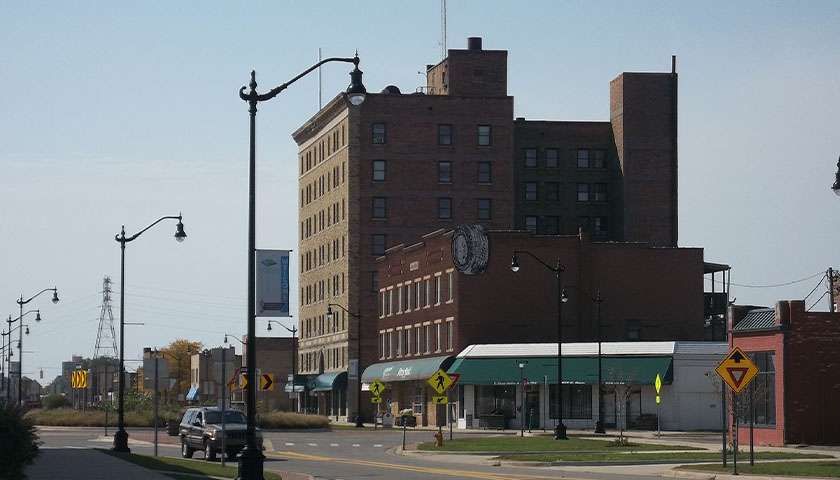by Scott McClallen
When Liesl Clark, director of the Michigan Department of Environment, Great Lakes and Energy (EGLE), was asked five times in a row whether Benton Harbor’s water was safe to drink, she repeatedly said, “the state of Michigan wants citizens to be drinking bottled water.”
“Come on, let’s talk like normal people here,” Rep. Steve Johnson, R-Wayland, responded. “It’s a normal question: Is the water in Benton Harbor safe to drink or not?”
Clark eventually answered “no,” and recommended residents drink bottled water.
The interaction shows how tense and complex the issue is as another majority-Black Michigan town could have had unsafe drinking water for the last three years.
In 2018, a sanitary survey of Benton Harbor found its elevated lead levels in water – the first time since 1972, which triggered corrosion control. In March 2019, officials treated the water with a 70/30 polyphosphate blend to coat the pipes so that lead wouldn’t leech into the water, but that didn’t work. EGLE increased the dose in Feb. 2020, changing to a 90/10 blend of more orthophosphate and less polyphosphate. EGLE Water Director Eric Oswald said the Benton Harbor water has shown some improvement, but treatment process can take years to work.
Three years later, the city is still in trouble.
“Nobody is satisfied that Benton Harbor has had these six action level exceedances,” Oswald said.
After the initial testing showed high lead levels, Clark and Oswald said the department helped distribute water filters and obtained a chemical meant to reduce corrosion in water pipes. But it’s unclear if either is working as intended.
“We must recognize that our shared goal of safe drinking water for all Benton Harbor residents will not be achieved until we get all the lead pipes out of the ground,” Clark said. “ All the testing confirms that the water coming out of the city’s drinking plant leaves the plant without lead and it moves to the faucet, through the service lines and other plumbing that contains lead.”
When Bishop James Atterberry woke up this morning in Benton Harbor, he couldn’t flush his toilet or take a shower because a 20-inch pipe burst yesterday and that dewatered about 70% of the Benton Harbor system, Oswald said. It highlights how some Benton Harbor residents can’t even rely on clean drinking water, which much of Michigan takes for granted. The problem isn’t isolated to Benton Harbor. Hamtramck just exceeded its lead action level, triggering corrosion control. Clark estimated that replacing lead pipes statewide would cost $2 billion.
Last week, Gov. Gretchen Whitmer signed Executive Order 2020-06 to coordinate state resources to provide safe drinking water to Benton Harbor.
Johnson pressed EGLE officials, saying that residents still can’t even drink their water despite the state knowing about elevated lead levels for three years. He repeatedly asked why the state is ramping up its response in the last month instead of the last three years.
Benton Harbor Mayor Marcus Muhammad told lawmakers he needs $11.4 million to complete lead line replacement. Gov. Gretchen Whitmer set a goal to replace Benton Harbor’s lead pipes in 18 months.
“At the end of the day, we can declare a state of emergency, but without the money and the resources, nothing can be done,” Muhammad said.
– – –
Scott McClallen is a staff writer covering Michigan and Minnesota for The Center Square. A graduate of Hillsdale College, his work has appeared on Forbes.com and FEE.org. Previously, he worked as a financial analyst at Pepsi.
Photo “Benton Harbor” by Humbles Art CC BY-SA 3.0.








